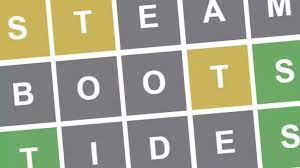Coaching abilities that are both transformative and effective focus on assisting someone in improving their job performance and developing their skillset. They may aid in boosting employee morale while also moving businesses toward their ultimate objectives and aims.
The coaching abilities possessed by leaders in the workplace will have a direct influence on the efficiency and the success of a team or company. The coaching technique challenges some of the old top-down model’s preconceptions, promoting greater collaboration and communication while establishing tough standards.
A 14-step process is a collaborative approach that develops positive connections to aid with problem-solving, staying on track, and exceeding expectations. How might you apply this method in your own leadership position, as well as what support and training are available to help you do so?
We’ll go through what coaching is, how it works, and how to make the most of your coaching abilities at work in this article.
Understanding coaching skills
No matter how you look at it, coaching is all about assisting people in achieving their full potential. It’s a form of leadership that isn’t focused on flaws. Instead, it seeks to ask questions, and foster good communication, goal-setting and reflection to help people perform better. The goal is to encourage positive leadership, personal and group strengths, and improved cooperation.
The main advantage of managerial coaching is that it helps to form close ties among team members while also gaining the confidence of others. They create a cooperative, goal-oriented workforce with increased productivity and overall well-being. Coaching skills help create more pleasant working conditions and supportive connections, which are critical to any team’s success.
Coaching leadership is an approach to empowering people and teams to be as successful as possible. To achieve this, coaching leaders give fewer direct orders and instead assist individuals in finding their own answers and making the best decisions.
This can be achieved through asking questions and good two-way and inter-group discussions. This implies that coaching leaders should be open to receiving input, not just seeking a certain response. They should also be ready to respond to inquiries on their own, assisting in the development of trust and a mutually beneficial working relationship.
Coaching leadership entails providing useful and meaningful feedback to team members so that they may know how well they are doing. You should be able to offer constructive praise to create a productive workplace environment, ideally. Leaders should also be capable of receiving criticism and giving others the opportunity to provide constructive replies. This helps leaders identify areas for improvement and acts as a positive example for others to follow.
Another important characteristic of leadership is flexibility. Leaders realize that change may occur without notice and being able to adapt to it is critical for the entire team. When everyone works together, flexibility and adaptation demonstrate that challenges can be overcome.
Coaching leadership places a premium on team morale. Team building is an essential component of any coaching leadership approach, assisting people in developing a bond with one another. Effortless goals are achieved by motivated teams that work more successfully, making the process of achieving goals both simpler and more pleasurable.
Coaching skill
Leadership coaching has a number of benefits that can be measured in terms of the company’s bottom line. It may improve team performance and increase employee effectiveness, self-awareness, and strategic thinking by providing an immediate boost to individual performance.
Coaching skills can aid CEOs in providing essential services in the business. These are some of the benefits that coaching may provide:
An empowered workforce
Coaching enables leaders to build beneficial relationships across the team and discover unrecognised skills and shortcomings. It helps people to recognize objectives that they can genuinely achieve, boosting their confidence to take action and think on their feet.
Leader-team discussions between reflective sessions allow everyone in the group to see how they’re getting better as a team as we work together toward accomplishing our objectives.
Greater Insights
Leaders who employ coaching methods can assist team members in gaining new insights that will help them improve their performance as a whole. They’ll be encouraged to take a step back and examine any issue thoroughly, allowing them to discover the underlying problem.
Creative Thinking
Coaching skills fosters a creative attitude to problem-solving among team members. They ask questions to stimulate free thinking, fresh insights, and greater adaptability in order to break through logjams. Creating innovative ideas is at the heart of flexible leadership and teamwork, which aids in the development of a team that is versatile and able to respond swiftly to unforeseen problems.
Improved Communication
Leaders who incorporate coaching skills into their working and management style will put a premium on communication. Leaders will focus on how they communicate with their employees, as well as how their team communicates with each other. They’ll establish a culture where effective communication is encouraged throughout the team.
Performance
Leaders who utilize coaching skills boost their team’s performance. They’ll focus on issues that might make a significant difference in abilities and attitudes. They’ll be able to use new leadership methods tailored to the team’s collective and individual shortcomings.
Developing skills
The coaching approach to leadership has several unique qualities that make it difficult for some people. It has its own set of standards from other management theories, and it may necessitate a more proactive strategy. Leaders must be equally active in their personal and team development. Adopting a coaching method offers numerous advantages; nevertheless, the process is not simple
We’re committed to demonstrating the benefits of a coaching leadership style through our Leadership Success program of leadership training. A professional coach is engaged in focused learning that goes beyond a typical leadership course. They spend a lot of time with you to help you accomplish your goals.
We’ve worked with over 25,000 leaders of all levels, and our outcomes are proof. On average, participants said they were either satisfied or extremely satisfied with a 40% improvement in their performance
To learn more about our leadership development programs and how Leadership Success can help you reach out to one of our experienced coaches right now.

















